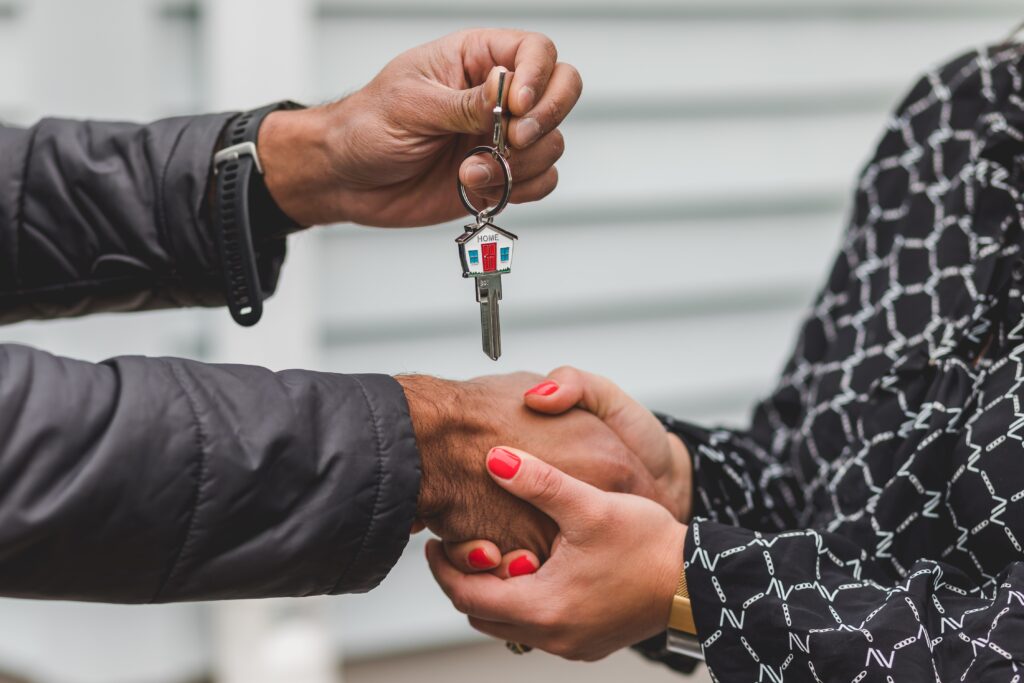
The previous Government Help to Buy equity loan closed to new applicants on October 31st, 2022.
If you’re a buyer eligible for the equity loan, and submitted your application before the cut off, your homebuilder must finish building your home by Saturday 31st December 2022. You must then legally complete and get the keys to your new property by 6pm on Friday 31st March 2023. It has been confirmed that there will be no extensions or exceptions.
FIRST HOMES – WHO AND WHERE WILL THE SCHEME HELP THE MOST?
Offering first-time buyers over the age of 18 in England the chance of home ownership with discounts of 30-50 per cent of market value, the Government’s First Homes programme is a successor to Help to Buy – but the scale and impact will be very different. If buying as a couple, neither partner can previously have owned a home.
WHO CAN AFFORD A FIRST HOME?
First Homes has a combined earnings eligibility cap of £90,000 in London and £80,000 elsewhere.
Must be able to get a mortgage for at least half the price of the home.
The local council may also set some eligibility conditions:
For example, some councils may prioritise giving First Homes discounts to:
• essential workers
• people who already live in the area
• those on lower incomes
VALUE CAPS LIMIT THE POTENTIAL FOR FAMILY HOUSING
First Homes value caps are set at £420,000 in London and £250,000 for the rest of England.
The primary consequence is that developers in these locations may only build smaller First Home properties that will fall within the value cap, rather than delivering a range of sizes, including larger properties suitable for family housing.
HOW FAR WILL THIS ENABLE PEOPLE TO GET ON THE HOUSING LADDER?
First Homes is seen as the replacement for Help to Buy but will have a very different impact. It should open home ownership to a larger number of less affluent households than Help to Buy, particularly in the Midlands and the North. But in parts of the South, the ability to deliver family housing that is affordable to middle and lower incomes households may be more limited.
The Government has stated that 25 per cent of all affordable housing delivered through developer contributions should be First Homes. Based on 2019/20 delivery, this would equate to 7,500 First Homes per year, significantly lower than the 49,714 homes that were bought using Help to Buy in 2020.
Buyers also need to be aware of the restrictions that apply in the future. When they come to resell the home, the discount will be passed on to the purchaser, and the purchaser must meet the local authority defined eligibility criteria.
But despite these restrictions, the scheme does offer another route to home ownership and enables people who would likely otherwise be renting to have increased security of tenure and be settled in a location for the long term.
HOW IT WORKS
You can look for new homes in your area that are advertised by developers as part of the First Homes scheme.
Developers offer these homes to first-time buyers with 30% to 50% of the market value taken off the price.
Every home that’s sold is valued by an independent surveyor to make sure the discount is based on actual market value. The scheme discount will be re-applied to this new value for the new owner.
The homes cannot cost more than £420,000 in London, or £250,000 anywhere else in England, after the discount has been applied.
You can only sell the home to someone who is eligible to buy a First Home. You must give them the same percentage discount that you got, based on the home’s market value at the time of sale.
HOW TO APPLY
You contact the developer (or estate agent if buying from a previous First Homes buyer) and tell them about wanting to buy a First Home.
They’ll help you to complete the application, then send it to the local council. There may be a fee to pay if the First Home property is a New Build, the amount is set by the Developer. The fee will be refunded if the application is unsuccessful. The local council check an application to make sure it’s eligible under the scheme. They contact the client to confirm their decision and also contact the developer and mortgage adviser.
HELP TO BUY VS. FIRST HOMES SCHEME
If you want Government help towards buying your first home, here are the main key facts and differences between the new First Homes scheme and the previously available Help to Buy equity loan.
FIRST HOME SCHEME
• You get up to 30% off the price of a home, which you don’t have to pay back later
• You need to buy in your local area, which can help you avoid getting priced out of your own community
• You won’t need to borrow or put down as much money
• The discount will apply when you sell, meaning you can only sell to first-time buyers
• Carries a property price cap of £250,000 in England (rising to £420,000 in London) after the discount is applied
PREVIOUSLY AVAILABLE HELP TO BUY – EQUITY LOAN
• You can borrow up to 25% of a property price (40% in London) to boost your deposit
• You get a loan, rather than a discount, which means you need to pay it back, but the repayments don’t start for the first five years
• You can buy a New Build in any area and from any registered homebuilder that offers it
• Each region has a property price cap, ranging from £186,100 in the North East to £600,000 in London
If you’d like to discuss the options available to you, contact one of our independent advisers on 01329 282882 or by sending a message to our Facebook or Contact Us page.
Your home maybe repossessed if you do not keep up repayment on your mortgage.
